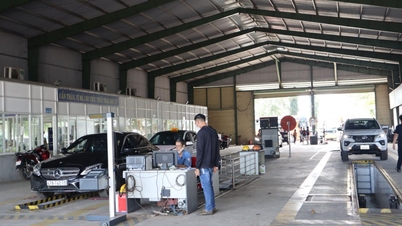I have arthritis, often have pain, especially when it is cold. I drink coffee every day, sometimes after drinking it the pain gets worse. Does coffee affect this disease? (Hoa Tien, Quang Ninh )
Reply:
Coffee is a central nervous system stimulant, enhancing alertness, memory, concentration and physical performance... If not mixed with sugar, milk, this beverage is low in calories, providing many nutrients such as polyphenols (antioxidants), vitamins B2, B3, B5, manganese, potassium, magnesium. Therefore, when consumed in moderation, coffee brings many health benefits.
For people with arthritis, coffee has both advantages and disadvantages, depending on the type of arthritis, the type of coffee consumed, and the amount consumed per day.
Gout
A 2016 meta-analysis in South Korea of more than 175,000 people found that consuming one or more cups a day can reduce uric acid levels. High blood uric acid levels, which form urate salt crystals that deposit in the joints, are the cause of acute gout attacks. The study noted positive effects for gout sufferers in both caffeinated and decaffeinated coffee.
Rheumatoid arthritis
Coffee contains antioxidants and other active ingredients that help protect cells in the body from inflammation and tissue damage caused by free radicals. Free radicals play a major role in the development of many inflammatory diseases, including rheumatoid arthritis.
In theory, drinking more coffee may help prevent rheumatoid arthritis or reduce symptoms of existing arthritis, such as joint pain. However, the results of real-world research are unclear.
Some studies have found no increased association between caffeinated or decaffeinated coffee and the risk of developing rheumatoid arthritis. A 2019 study in the Journal of Clinical Rheumatology , which involved 76,850 women, found a higher risk of rheumatoid arthritis among women who drank decaffeinated coffee compared to caffeinated coffee.
Another 2020 study in the UK found that coffee consumption may increase the risk of developing rheumatoid arthritis because of its association with antibodies formed in response to the disease.
Osteoarthritis
Osteoarthritis is a form of arthritis that occurs due to the gradual wear and tear of joint cartilage. Aging is the most common risk factor for osteoarthritis.
Caffeine consumption negatively affects cartilage and bone development, which can increase the risk of osteoarthritis. A Spanish study published in 2020 recommends avoiding or limiting caffeine intake to prevent osteoarthritis.
You did not specify what type of arthritis you have. If you have frequent joint pain, the pain is prolonged and increasing, affecting your daily activities and movements, you should see a specialist soon to get an accurate diagnosis of the cause and timely treatment.
Health experts say that a safe daily intake of caffeine is about 400 mg, or about four 200 ml cups of coffee. Caffeine helps boost metabolism, aids weight loss, increases alertness, reduces fatigue, supports physical activity during exercise, and reduces the risk of cardiovascular disease.
Drinking too much coffee, caffeine intake above 400 milligrams per day, can cause negative effects such as increased heart rate, jitteriness, headaches, fatigue, poor concentration, difficulty sleeping, digestive problems. Caffeine also acts as a mild diuretic, stimulating the excretion of salt and water through urine, which can lead to mild dehydration. Adding cream, sugar, or other sweeteners to coffee increases health risks. For example, the extra calories and sugar can contribute to weight gain and increase the risk of diabetes.
MSc., MD., CK1 Dinh Pham Thi Thuy Van
Orthopedic Trauma Center
Tam Anh General Hospital, Ho Chi Minh City
| Readers ask questions about musculoskeletal diseases here for doctors to answer |
Source link


![[Photo] Students of Binh Minh Primary School enjoy the full moon festival, receiving the joys of childhood](https://vphoto.vietnam.vn/thumb/1200x675/vietnam/resource/IMAGE/2025/10/3/8cf8abef22fe4471be400a818912cb85)




![[Photo] Prime Minister Pham Minh Chinh chairs meeting to deploy overcoming consequences of storm No. 10](https://vphoto.vietnam.vn/thumb/1200x675/vietnam/resource/IMAGE/2025/10/3/544f420dcc844463898fcbef46247d16)
































































































Comment (0)